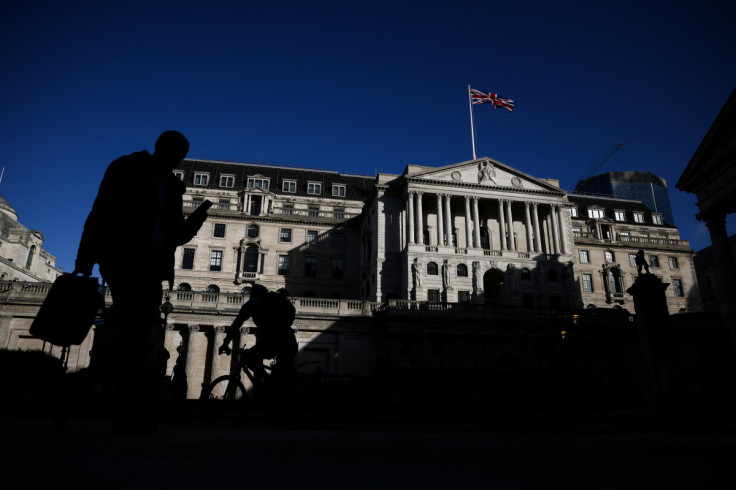
The Bank of England (BoE) says it will make an assessment next year about the risks posed by artificial intelligence (AI) and machine learning (ML).
In its bi-annual Financial Stability Review, the bank announced it would launch a fresh review into the impact of AI, amid fears the rapidly developing sector could pose serious risks to the UK's financial stability.
The BoE also claimed it was currently taking advice about the potential implications stemming from the adoption of AI and ML in the financial services sector, which accounts for around 8 per cent of the British economy and has deep-rooted global connections.
The bank's Financial Policy Committee (FPC), which identifies and monitors risks, said it and other authorities would seek to ensure that the UK financial system is resilient to risks that may arise from the widespread use of AI and ML.
AI and ML have been used across the financial sector for at least a decade, to aid security by detecting fraud and money laundering.
However, a recent increase in technological advances and available data, as well as falling costs of computing power, had sparked "considerable interest" and more widespread use across the sector, regulators on the FPC said.
As a result, some observers have raised concerns over AI's as-yet-unknown dangers and have been calling for safeguards to protect people from its existential threats.
"We obviously have to go into AI with our eyes open," the bank's governor Andrew Bailey said at a press briefing. "It is something that I think we have to embrace, it is very important and has potentially profound implications for economic growth, productivity and how economies are shaped going forward."
"The moral of the story is if you're a firm using AI, you have to understand the tool you are using, that is the critical thing," Bailey said.
While most companies suggested the way they were using the technology was "relatively low risk", the FPC warned that wider adoption "could pose system-wide financial stability risks". That could mean greater "herding behaviour", where there is a concentration of firms making similar financial decisions that skew markets and an increase in cyber risks.
New AI and data providers could also end up becoming important participants in financial markets and require closer oversight.
The Bank, its regulatory arm the Prudential Regulation Authority, as well as the City watchdog the Financial Conduct Authority, will launch a consultation paper on these "critical third parties" later this month.
The FPC concluded that "given the rapid pace of innovation and potentially widespread use cases, the impact of AI and ML ... on financial stability needed careful monitoring and consideration".
Over the past year, the potential benefits and threats of AI have grown exponentially.
The creation of a large language model ChatGPT last November thrust AI into the mainstream discourse, causing fears over the rapid development of advanced systems to be expressed by many within the science and technology community.
There is now a global race to figure out how to regulate AI like OpenAI's ChatGPT and other chatbots, with leaders in the 27-nation European Union aiming to publish ground-breaking regulations on Wednesday.
Last month, Sunak hosted the world's first 'AI Summit' at Bletchley Park, Buckinghamshire, where world leaders and tech specialists gathered to discuss the benefits and dangers AI poses.
The conference concluded with the signature of the Bletchley Declaration – the agreement of countries including the UK, United States and China on the "need for international action to understand and collectively manage potential risks through a new joint global effort to ensure AI is developed and deployed in a safe, responsible way for the benefit of the global community".
AI aside, the BoE also warned nearly five million UK households are facing an average £2,900 increase in their annual mortgage payments as debt servicing costs rise to the highest level since 2008.
The Bank said that the average mortgage burden will rise from 6.8 per cent this year to just under 9 per cent by the end of 2026 – the highest since the financial crisis.
A typical mortgage holder switching from a fixed-rate loan this year faces paying an additional £240 per month, in estimates that are based on interest rates staying unchanged for most of 2024.
The BoE has aggressively raised interest rates from 0.1 per cent in December 2021 to 5.25 per cent but has kept the base rate steady since September in the face of steadily falling inflation.
Bailey said businesses and households were showing signs of "resilience" but warned that "mortgage debt servicing costs will continue to rise over the coming year".







